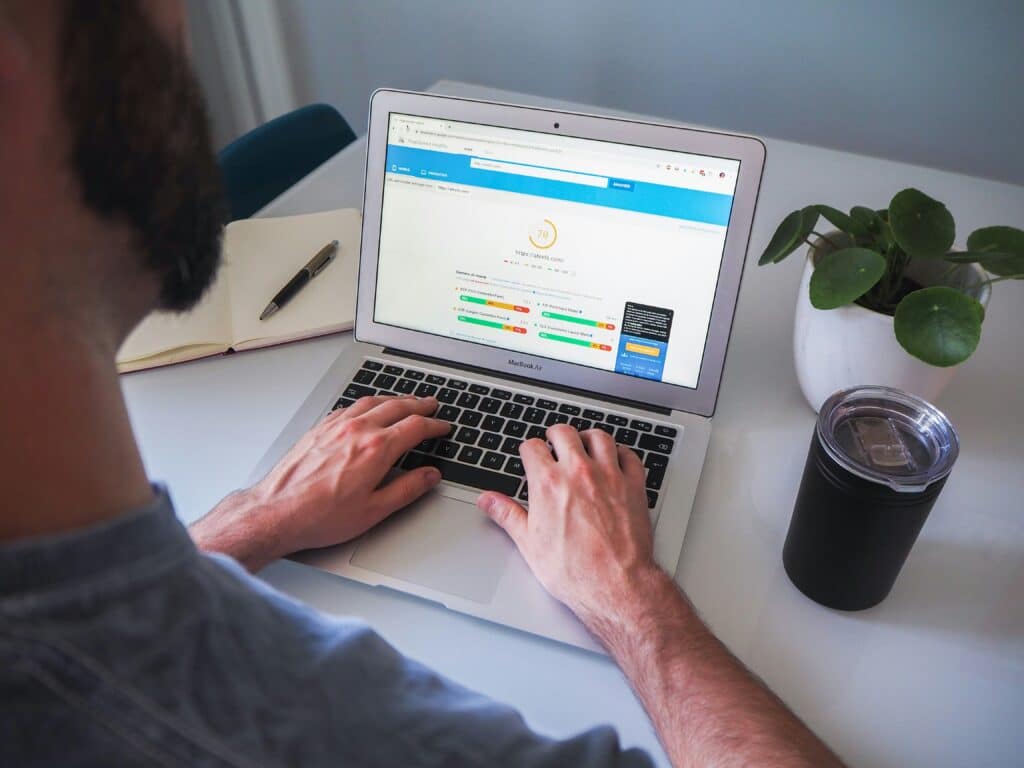We like to think of websites as a second salesperson. Even a handshake. It’s most likely the first thing that someone is going to see before the come to your store, send you an email, or set up an appointment. So, it should capture everything that you have and all that you are. No pressure, right? Unless you don’t actually need a website to do business, you should feel at least a little pressure. One of the most important tasks of any site owner is keeping people on said website. How will you drive conversions otherwise?
Why does website load time matter?
One thing that’s a surefire way to drive traffic away from you and to a competitor is website slow speeds. We live in a world of instant gratification. If users have to sit around and wait for your site to load, they’re statistically more likely to go somewhere else. Another problem with a slow website is searchability. Google and other search engines rank slow websites slower. No matter how much time and money you invest into keyword research and optimization, if your website is slow, SERPs with ding you.
Here are some common issues that effect the load speed of your website and some tips for addressing each issue:
1. You need a new host
All websites are stored on a server and every server is maintained by a host. This could be a local guy who pays diligent attention to the health and efficiency of their server (such as The Cultural North), or it could be a third-party, faceless company that hosts thousands of websites. Either way, if your website is running slow for no apparent reason, then you could need to call your host provider, or get your website transferred over to a new one.
You may also need to make sure that your host uses a Content Delivery Network (CDN). When someone too far from the server tries to access your site, it’s going to take longer for the website to load.
2. There’s a problem with your cache
And that problem could be that your website isn’t. If you’re not sure what caching is, it basically acts as a way for individual users to store content from your site on their own devices after having visited it. Instead of the browser needing to sift through and present this information every single time, it’s already there. Elements that take longer for browsers to read (image and video files, elaborate design and CSS, etc.) make the site load slower. When all this information is cached, the next experience will go far more smoothly.
Some people don’t have caching enabled because the content on their site is dynamic and always changing. However, if this doesn’t sound like your site, then you’ll want to ensure it is as it will improve the overall experience for your users!
3. Check on your media files
Like we said in the previous point, things that are harder for browser to read will lengthen the load speed of your site. There’s a good chance that you need all of the images and videos, but are they optimized for website load speeds? Here are something things to check:
- Use tools to compress your images
- Ensure images are sized optimally for the user devices
- Use JPEGs, PNGs, and WebPs
- Upload videos to YouTube and link to your site rather than uploading the video file to your website directly
4. Be mindful of your plugins
Too many plugins will slow down your website. It might seem like you need three plugins to accomplish one thing, but further research might uncover a plugin that can do it all. Additionally, third-party plugins (plugins not native to your website platform) can be unpredictable and come with more problems than they’re worth. The tip here isn’t to avoid plugins, but to do in-depth research into them and to search for the most efficient and effect solution possible!
5. Your website might need to be updated
Things are always changing. Updates are always being made. If it’s been a while since your website was first created or since it’s had a serious update, then chances are things are outdated. Best practices also change and businesses evolve over time, too. As a good rule of thumb, websites should be redesigned every 2-5 years. As we said, things are always changing and your site should be changing it with it.
Getting started with The Cultural North
You can learn more about us here. Already ready for a new website or a website redesign? Get connected with our exceptional sales team!

